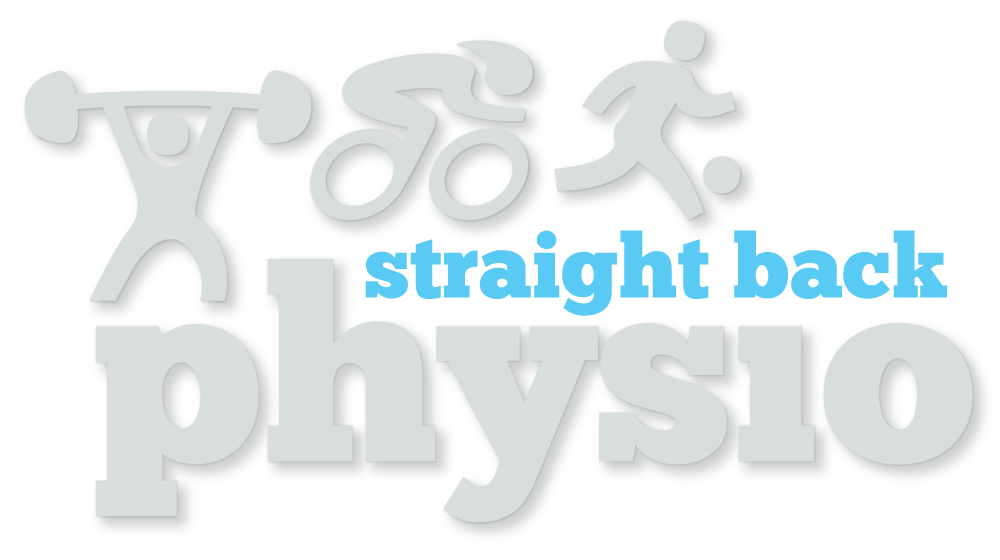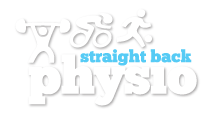Shoulder pain in Cheltenham
Using physiotherapy for shoulder joint pain is a highly effective treatment option, whether it’s from an injury, operation, or wear and tear. By providing pain relief, improving mobility, and addressing the underlying causes of the pain, we can help you achieve long-term recovery results.
We successfully treat a range of shoulder issues including: those caused by poor posture or overuse; those caused by injury, such as a fall or a contact sports collision; rotator cuff tears; arthritis; frozen shoulder; shoulder dislocation; shoulder separation; tendon tears or inflammation; as well as post-operative issues.
We’ll identify the root cause and provide relief from your shoulder pain by developing tailored treatment plans to address your individual needs, promoting healing and help prevent you from future injury.

causes for shoulder pain
Shoulder pain has several possible causes, it is essential to pay attention to any pain or discomfort in the shoulder area. Your shoulder allows you to move your arms. Its wide range of motion makes it more at risk of injury. Some of the most common causes are arthritis, muscle strain or dislocation.
Some pain has no obvious cause, or it may not improve significantly with RICE (Rest, Ice, Compression, Elevate). You should seek professional advice if your pain: is severe or getting worse over time; does not improve after treating it at home, is worrying you, or you’re struggling to cope with it.
Types of shoulder injury
adhesive capsulitis
Also known as a frozen shoulder, adhesive capsulitis is when the shoulder loses a large range of movement and becomes very painful and stiff. The tissue surrounding the shoulder joint becomes inflamed and painful which prevents movement of the shoulder and, in some cases, prevents movement altogether.
The exact reason why a frozen shoulder develops is unknown. They tend to occur in the middle-aged or older people and are believed to result from irritation of the shoulder joint and its surrounding capsule. Irritation to the shoulder joint capsule causes an inflammatory response with the formation of adhesions, or small scars, between folds of the capsule.
Treatment may involve the use of anti-inflammatory drugs, stretching, strengthening and range of movement exercises. Occasionally, if these measures do not provide relief, referral for an injection into the shoulder joint may be appropriate. Other physiotherapy options include Postural Realignment, Ergonomic Assessment, Acupuncture, Taping and Soft Tissue Treatment.

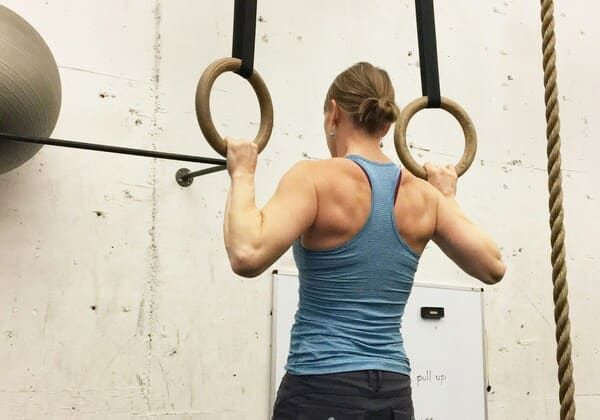
Labral tear
A labral tear is a tear to the labrum which can occur as a result of trauma to the shoulder. The labrum is a ring of cartilage that surrounds the head of the humerus (upper arm bone) where it meets the shoulder. This is to make the ball and socket joint more stable and allows the shoulder to achieve a greater range of movement.
Physiotherapy can be a useful treatment and can prevent the need for surgery. There are three types of labral tears:
- SLAP Tear – This is a tear at the top of the labrum.
- Bankart Lesion – This is a tear at the front of the labrum.
- Reverse Bankart Tear – This is a tear at the back of the labrum.
Treatment can involve resting the shoulder, usually with the help of a sling, with movement gradually increased under a physiotherapist. Strengthening of the shoulder can then also be gradually increased and should focus on the muscles collectively called the rotator cuff. Strengthening the muscles around the shoulder blade and in the arm may also help to provide stability to your shoulder after a labrum tear.
Rotator cuff tear
The rotator cuff refers to a group of four small muscles that run from the shoulder blade to the top of the arm bone. They support and move the shoulder joint. A rotator cuff tear refers to a tear in one or more of these muscles. Physiotherapy can effectively treat rotator cuff tears.
A tear of the rotator cuff is usually felt as sudden sharp pain or ‘twinge’ in the shoulder. A person with minor tears may be able to continue with this pain with minimal hindrance. However, as the muscle cools down the pain often gradually worsens as bleeding and swelling around the injured muscle takes place. In severe tears, pain may be so significant that you are unable to continue participating. Other symptoms include reduced range of movement, stiffness, weakness, and joint clicking.
Rotator cuff tear physiotherapy treatment often involves activity modification, and the use of soft tissue treatment such as massage, stretching, and a series of specific, progressive strengthening exercises.
Other treatments include, Taping, Postural Realignment, Sports Injury Rehab, Ergonomic Assessment.

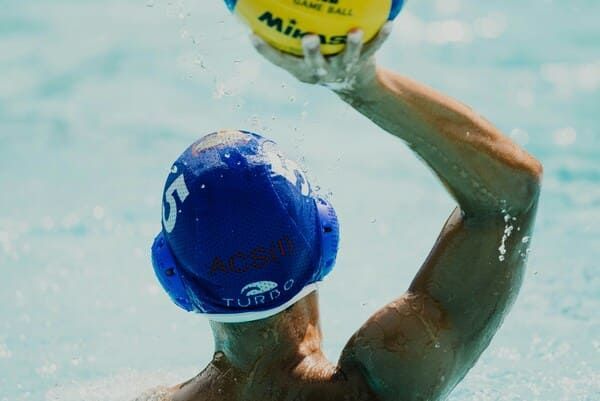
shoulder impingement
Impingement syndrome or Tendonitis is when the tendons of the muscles in the shoulder become irritated and swollen as they pass through a narrow passage called the subacromial space. The first symptoms of impingement can be mild.
Symptoms can get worse over time. Initial symptoms include reduced range of movement, swelling/ inflammation, stiffness, weakness, joint clicking, joint locking.
Impingement can be caused by overuse of the shoulder, especially repetitive overhead activities of lifting and throwing. Shoulder impingement can also be caused by muscle imbalance of the shoulder.
Physiotherapy may involve activity modification, and relative rest. Treatment may focus on pain reduction, stretching and strengthening of weak muscle groups to allow pain free life and sport.
Physio for shoulder impingement may include
Manual manipulation, Sports Injury Rehab, Exercise Programmes, Massage, or Postural Realignment.
Shoulder dislocation
Some people are susceptible to Shoulder dislocations - a condition when the ball of the Shoulder 'pops out' of the socket and stays out. This can occur in contact sport.
The injury that can significantly impair daily activities and quality of life. Physiotherapy plays a crucial role in the management of shoulder dislocations, aiding in pain relief, restoring range of motion, and strengthening the shoulder complex.
But most Vitaly in preventing further dislocations.
Following a shoulder dislocation, the joint often experiences stiffness and limited mobility. Physiotherapy utilises gentle stretching exercises, passive range of motion techniques, and mobilisation manoeuvres to gradually restore the shoulder's flexibility and function.
Weakness in the muscles surrounding the shoulder joint is common after a dislocation. Physiotherapists design tailored exercise programs focusing on strengthening the rotator cuff muscles and stabilising the shoulder girdle. Progressive resistance training helps improve muscle endurance and stability, reducing the risk of recurrent dislocations.
Physiotherapy emphasises functional exercises aimed at restoring the shoulder's ability to perform daily tasks and sports-specific movements safely and efficiently. Through targeted rehabilitation protocols, individuals regain confidence in using their shoulder without fear of re-injury.
Collaborative efforts between patients and physiotherapists are essential for achieving optimal outcomes and preventing future shoulder instability.
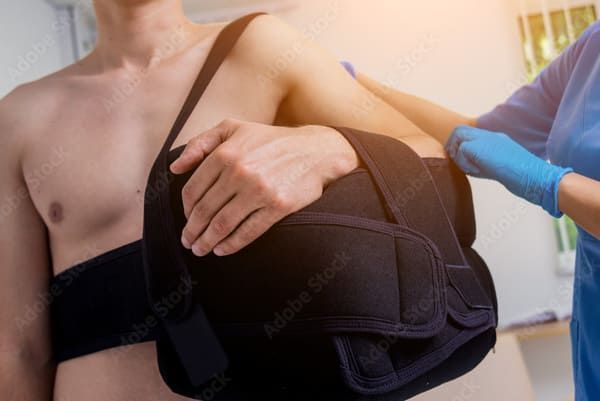

“After breaking an arm and then injuring my shoulder I went to see Straight Back Physio, based on a personal recommendation. The difference that they made was immense - the level of discomfort decreased quickly and there is no doubt that the speed of my recovery was improved significantly.”
RH, Google review
using a physiotherapist for shoulder pain
- Pain relief: We use a variety of techniques, such as massage, stretching, and exercise, to help alleviate pain and discomfort in the affected area.
- Avoiding surgery: By using non-invasive techniques to target the underlying cause of the pain, we can help you avoid more invasive treatments, such as surgery.
- Lasting results:
Physiotherapy takes a holistic approach to treatment, addressing the symptoms and underlying causes of pain or injury. This promotes long-term results.
- Improved mobility: Physiotherapy can help you regain range of motion in the affected area by using targeted exercises and stretches.
- Improved quality of life: By alleviating pain and improving mobility in the affected area, physiotherapy can help you enjoy your daily activities without discomfort or limitations.
- Personalised treatment: We’ll work with you to create a customised treatment plan. This will ensure you receive the most effective treatment and achieve the best possible outcomes.
- Reduced risk of further injury: By using targeted exercises and stretches, physiotherapy can help strengthen the muscles around the shoulder, which can help improve stability and reduce the risk of future injuries.
Book now
We are a physio shoulder specialist for the relief of shoulder pain in Cheltenham and the surrounding Gloucestershire areas using a wide range of treatments that are tailored to help keep you pain and injury free, we offer preventative services to maintain your well-being and enhance your activity levels.
We understand that some people may want to find out a bit more about the cost before they book an appointment at our physiotherapy clinic. Our unique
save as you recover packages can save you up to 20% on the cost of a single session.
For most injuries our chartered physio can usually treat you within 4 to 8 sessions.
Insured
We can either work directly with your insurance company or we can provide receipts for patients who use cash-based plans so you can reclaim your treatment costs.
Not Insured
You can book an appointment on a self referral basis, without the need for seeing your GP first.
Why Choose Us
No other local physiotherapy clinic can offer you the same level of physiotherapy and rehabilitation that we can, simply because they don't have our level of experience and our in-house gym facilities.
This is how we gained our reputation of treating patients when other physios may have failed.
Contact Information
Quick Links
Our Location
© Copyright 2024 | All Rights Reserved | Straight Back Physio
